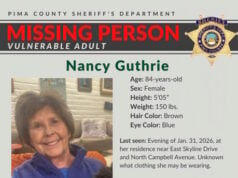
Many people are passionate enough about social justice that they’d do anything to contribute to it. Fortunately, you can dedicate your life to truth and justice while still earning a living. The chance to tell important stories and help others is something many people can’t pass up.
That said, it takes time, hard work, and patience to land a career centered around justice. Whether it be journalism or social work, many fields focus on social justice. Follow along as we explore some incredible career paths that let you fight for justice and truth.
You Can Make a Difference with a Justice-Centered Career
Truth and justice have never been more important in a world with so much constant discourse. Picking truth and justice as career paths may seem unattainable, but it’s possible with several unique career paths, such as:
- Forensic Social Worker
Social workers can choose between many specializations, and all of them prioritize social justice. However, forensic social work exists in a one-of-a-kind avenue that emphasizes legal justice as much as social justice. Forensic social workers do many of the same things as other social workers, but within the legal system.
For example, forensic social workers often assess and advocate for victims, as well as others caught up in the legal system. This entails working with alleged perpetrators of crimes as well, so you must be willing to advocate for everyone involved. The legal system can take a tough toll on people, no matter what side they’re on, and forensic social workers understand this.
Supporting victims and alleged criminals is equally important, so forensic social workers must display nonpartisan empathy. Forensic social workers can help people tell their stories, gain justice, face consequences, and move on from traumatic events.
- Child Welfare Caseworker
Sadly, many children find themselves caught up in terrible situations due to neglect, addiction, and violence. They often feel voiceless, as children and teenagers aren’t always taken as seriously as they should be. Child welfare caseworkers can advocate for children, help them, and ensure better outcomes for them.
As a child welfare caseworker, you must assess children and their circumstances to see what’s best for them. In some cases, this entails relocating children to protect them from their surroundings. Naturally, this job requires lots of empathy and strength.
It can be depressing in some cases, but having the chance to improve a child’s life is worth the effort. Whether it be visiting their homes, creating case plans, or supporting their families, you can make a huge difference. Child welfare is a critical niche within social justice, and the world needs as many selfless caseworkers as possible.
- Journalist
The state of journalism has changed in the digital age. However, that only means that proper, justice-centered digital journalism is more important than ever. Journalists have the responsibility to package the truth in a way that prioritizes transparency and the story’s importance.
Sometimes, this involves investigating verifiable social injustices, interviewing those involved, and writing strong stories. In other cases, it entails writing an op-ed about injustices you perceive in your community. Social justice journalists have a responsibility to report the truth and package it in a way that people can easily understand.
Sometimes, the truth is ugly, but telling ugly stories about injustices and inequality is important. Many people, sadly, aren’t represented enough in the media. As a journalist, you can ensure that such people get justice simply by telling their stories and highlighting their experiences.
- Victim Advocate
Much like forensic social workers, victim advocates support those involved in the legal system. However, victim advocates naturally focus on victims of crimes and support them throughout their journeys. Victims often need support beyond their friends and family, as even those closest to them may not always grasp the gravity of their situation.
Sometimes, victim advocates provide resources and recommend support groups for victims. Victim advocates also serve as counselors in many ways, as they listen to victims and often provide comforting words. Working as a victim advocate involves hearing about harsh truths, and it can take an emotional toll.
However, the ability to alleviate someone else’s pain and show them that someone cares about their struggle is a privilege. The counseling and resources you provide as a victim advocate can help the victim navigate the system more easily. This not only helps them in the aftermath of their situation, but it also sets them up to heal going forward.
- Public Defender
Some people who find themselves wrapped up in the legal system also struggle financially. Because of that, they cannot always justify spending money on legal defense. However, all defendants have a right to an attorney, and that’s where public defenders come into play.
Public defenders defend people who cannot afford to hire private attorneys. Without public defenders, defendants in poor, underserved communities would struggle to find an attorney. It’s a selfless career path in the sense that you can make much more money as a private defense attorney.
Public defenders still make good money, but they’re in it for the cause, rather than the money, in most cases. Otherwise, they would simply become private attorneys to maximize profit. Working as a public defender gives you the chance to help defendants tell their stories and ensure a fair trial.
You Can Make a Career Out of Truth and Justice
Doing the right thing and standing up for those who need it is rewarding even without a financial incentive. Today, it’s much easier to carve out a justice-centered career for yourself. Working as a social justice-focused journalist doesn’t require as much schooling as many other justice-centered careers.
However, becoming a public defender or forensic social worker requires a bigger educational commitment. Whether you become a lawyer, social worker, or victim advocate, your career will reward you much more than the money you make. The ability to tell people and cultures’ stories while prioritizing truth and justice is a privilege, even if it takes a lot of work.
Disclaimer
The information contained in South Florida Reporter is for general information purposes only.
The South Florida Reporter assumes no responsibility for errors or omissions in the contents of the Service.
In no event shall the South Florida Reporter be liable for any special, direct, indirect, consequential, or incidental damages or any damages whatsoever, whether in an action of contract, negligence or other tort, arising out of or in connection with the use of the Service or the contents of the Service.
The Company reserves the right to make additions, deletions, or modifications to the contents of the Service at any time without prior notice.
The Company does not warrant that the Service is free of viruses or other harmful components












